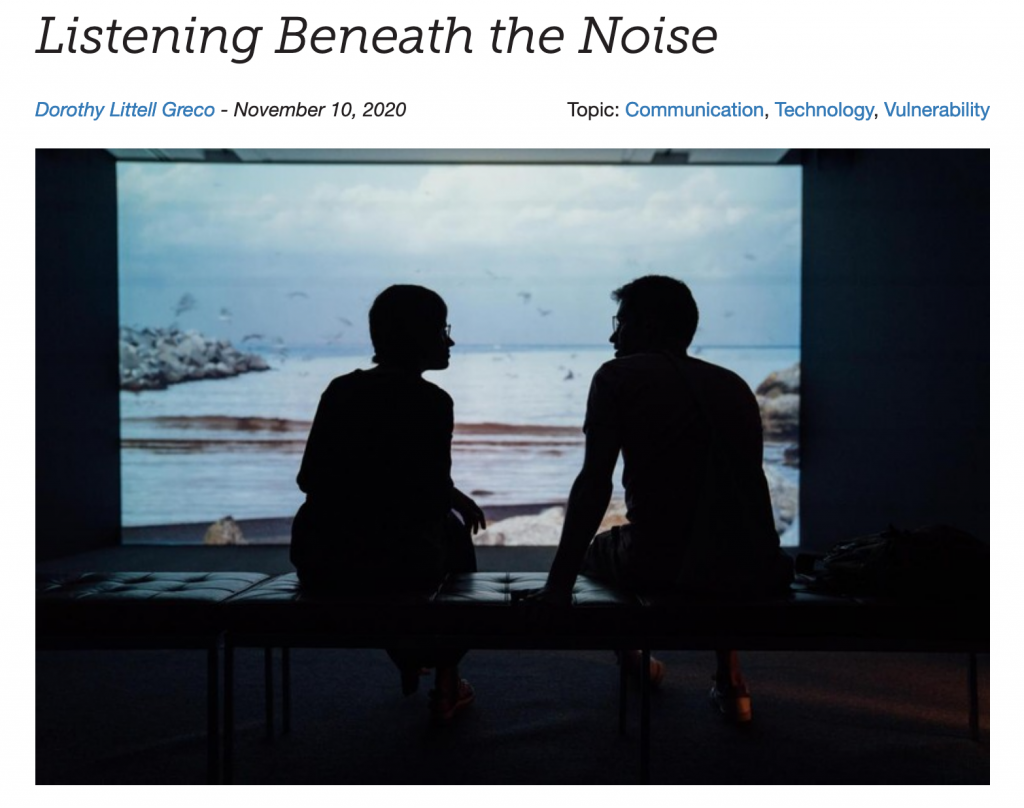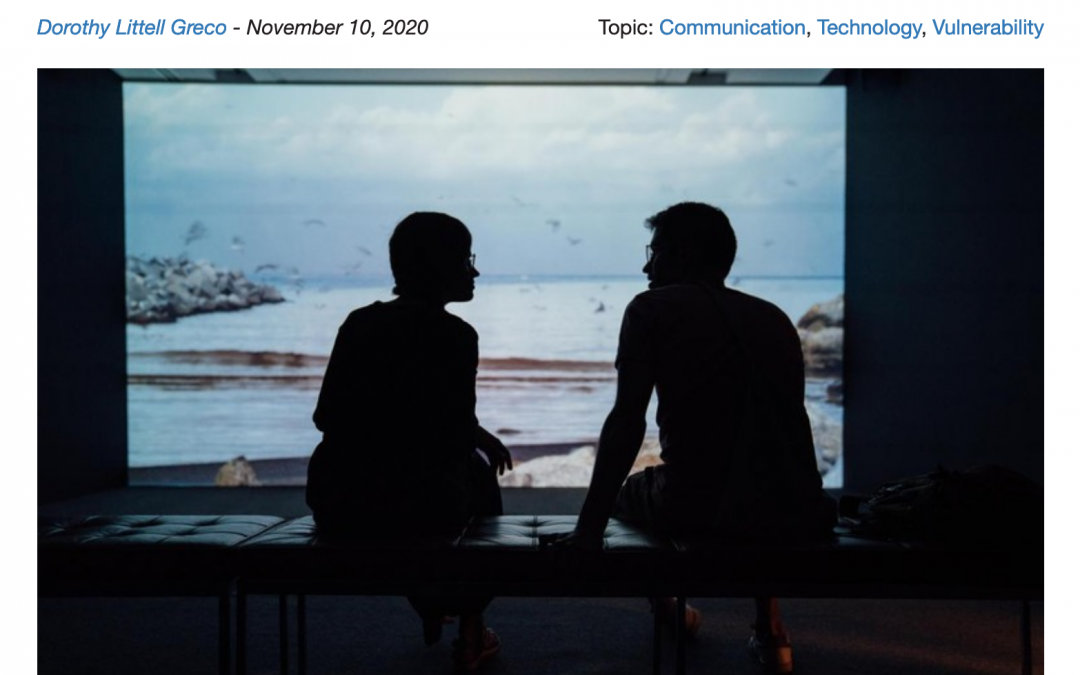
God set humanity apart from all other created beings by giving us the gift of speech. This allows us to sing hymns and lullabies, teach algebra, engage in meaningful conversations, and say I love you. Language is meant to be a tool that helps us to connect with each other. But for that connection to happen, someone needs to be listening. And in our highly polarized and frenetic world, that seems to be increasingly difficult.
There are a myriad of reasons why we struggle to really hear each other. Some are simple (such as being tired or habitually multi-tasking) and others are more complex. Ironically, one of the most universal barriers can be technology itself.
Though we all rely on technology to communicate, its limitations can hinder us from deeply connecting. First, the sheer number of options is both dizzying and fracturing. If you love Voxer and your best friend insists on texting, it’s inevitable that you will occasionally miss each other. And because passing along information via phones and computers saves time, it can cause us to prioritize efficiency over depth. Even under the best of circumstances, electronic communication limits our ability to understand one another because we can’t read the more subtle, visual clues that normally fill in the gaps. The resulting ambiguity can leave us feeling uncertain or insecure. Additionally, in this season of social distancing and limited face-to-face contact, because so much of our communication is happening over the internet, we may have little energy or enthusiasm to FaceTime with friends after a full day in front of the computer.As researchers are learning, we are increasingly lonely and disconnected despite the plethora of options at our fingertips.
Then there’s the fact that the sheer volume of news and information that we consume can lead us to believe that we’re basically experts on any number of topics from the economy to COVID. Of course, we’re not experts but a little information can go a long way in confirming our biases and making us less tolerant of those who disagree with us. It’s certainly easier to defend our point of view than to listen well and be open to another’s point of view. But,defensivenessdoes little to help us understand—let alone love—our neighbors. Particularly the ones whose front yards sport signs promoting the “opposing” political party.
Click this link to read the remainder of this article at Biola Center for Marriage and Family.
